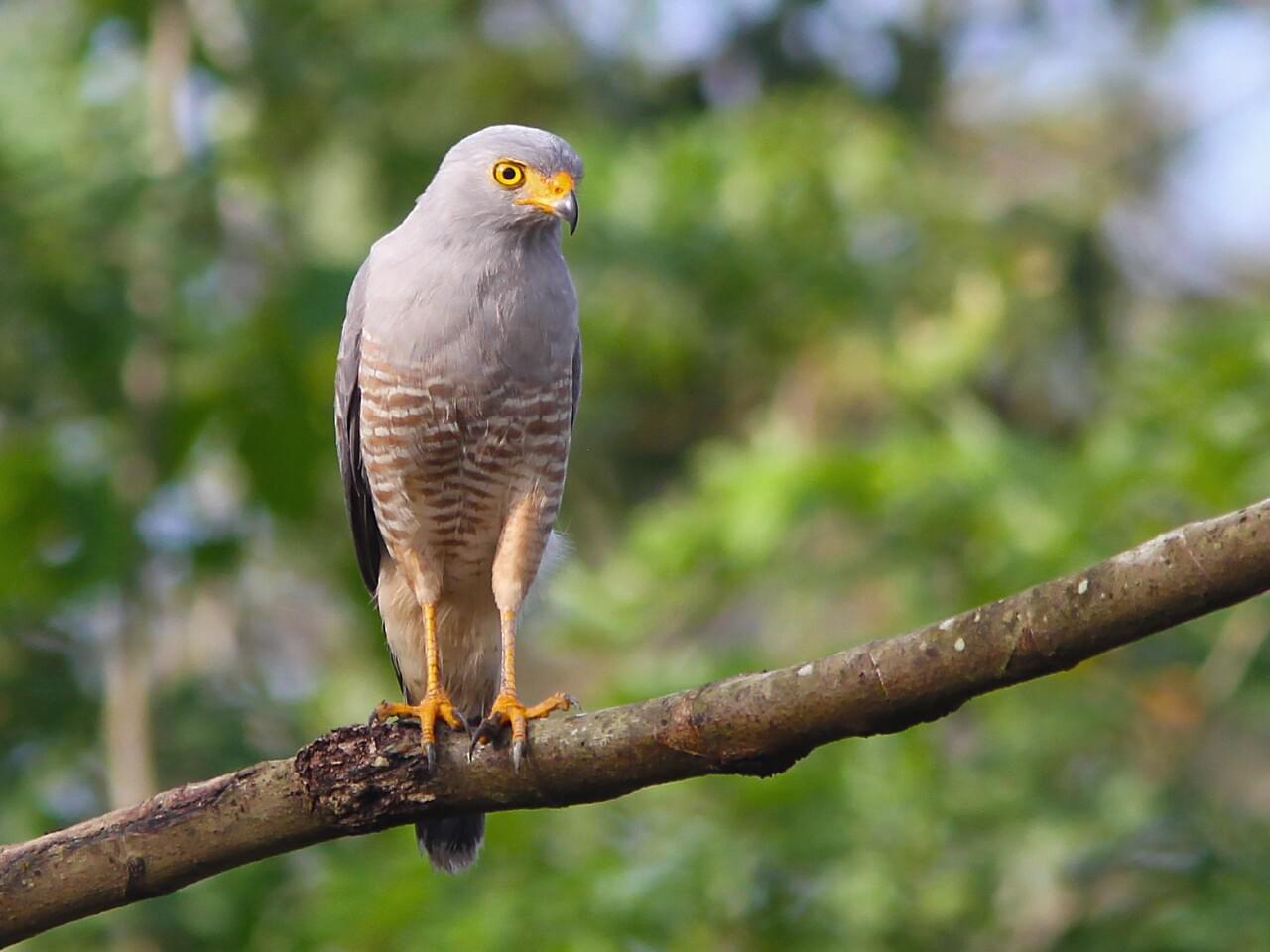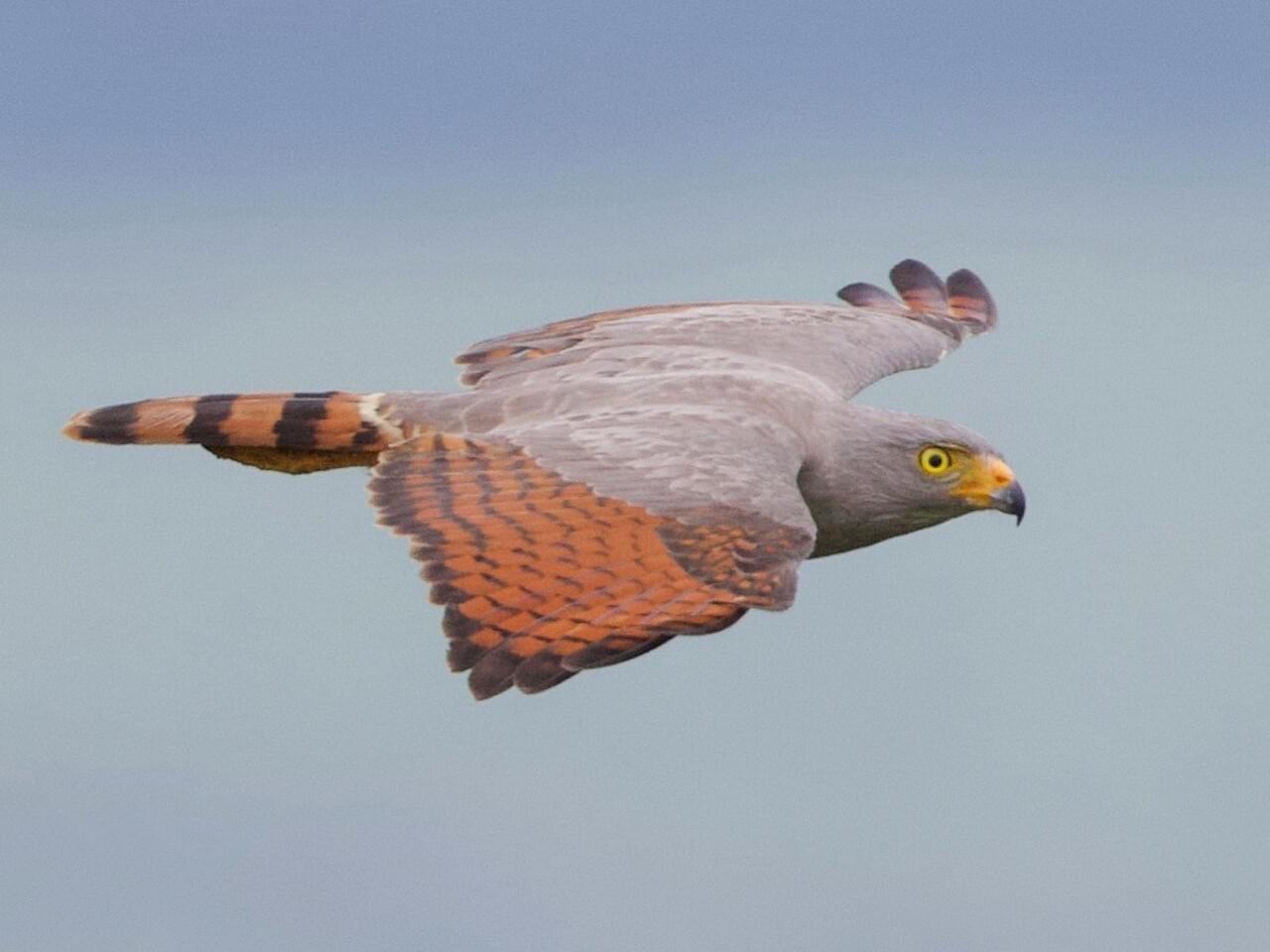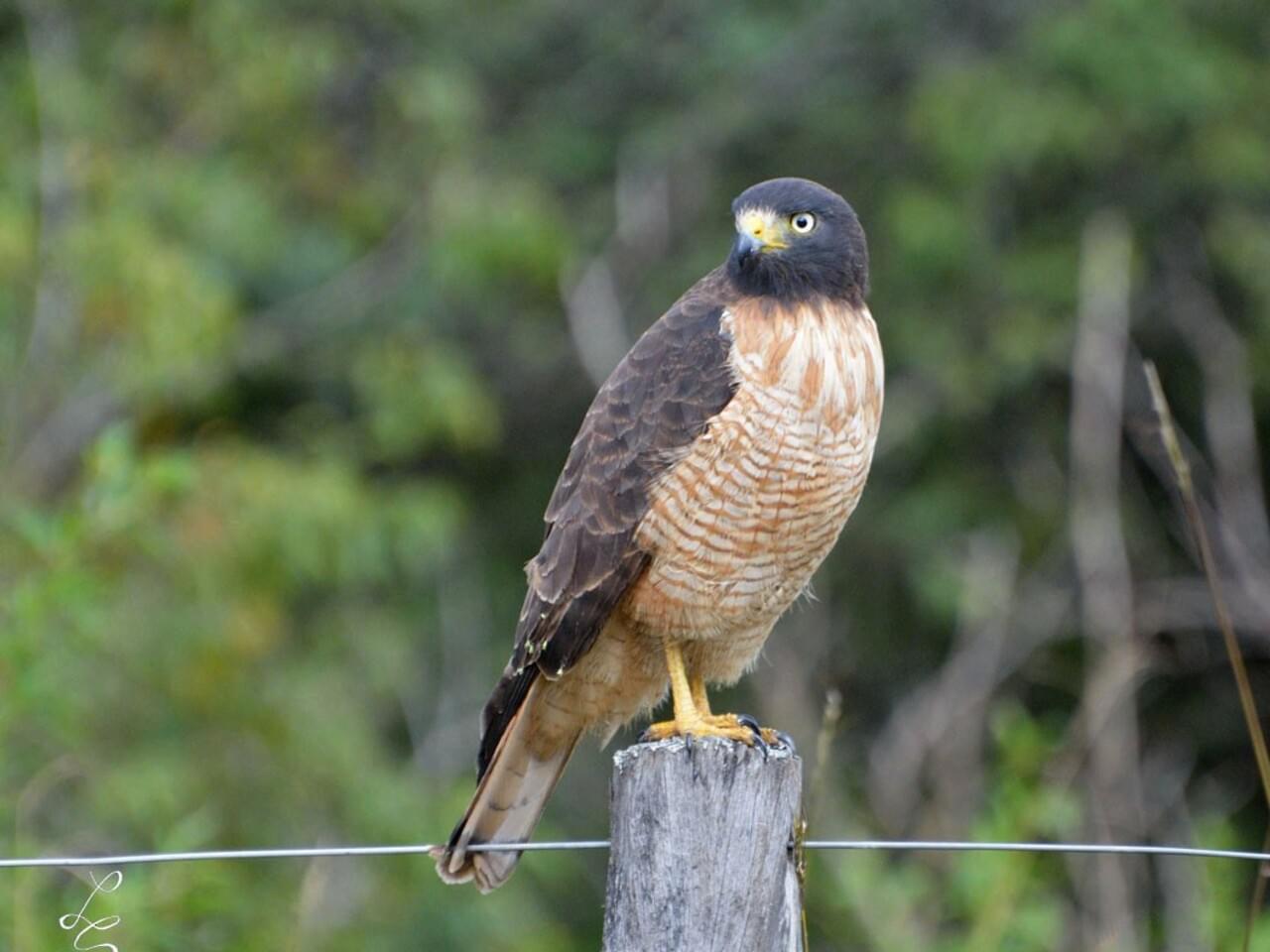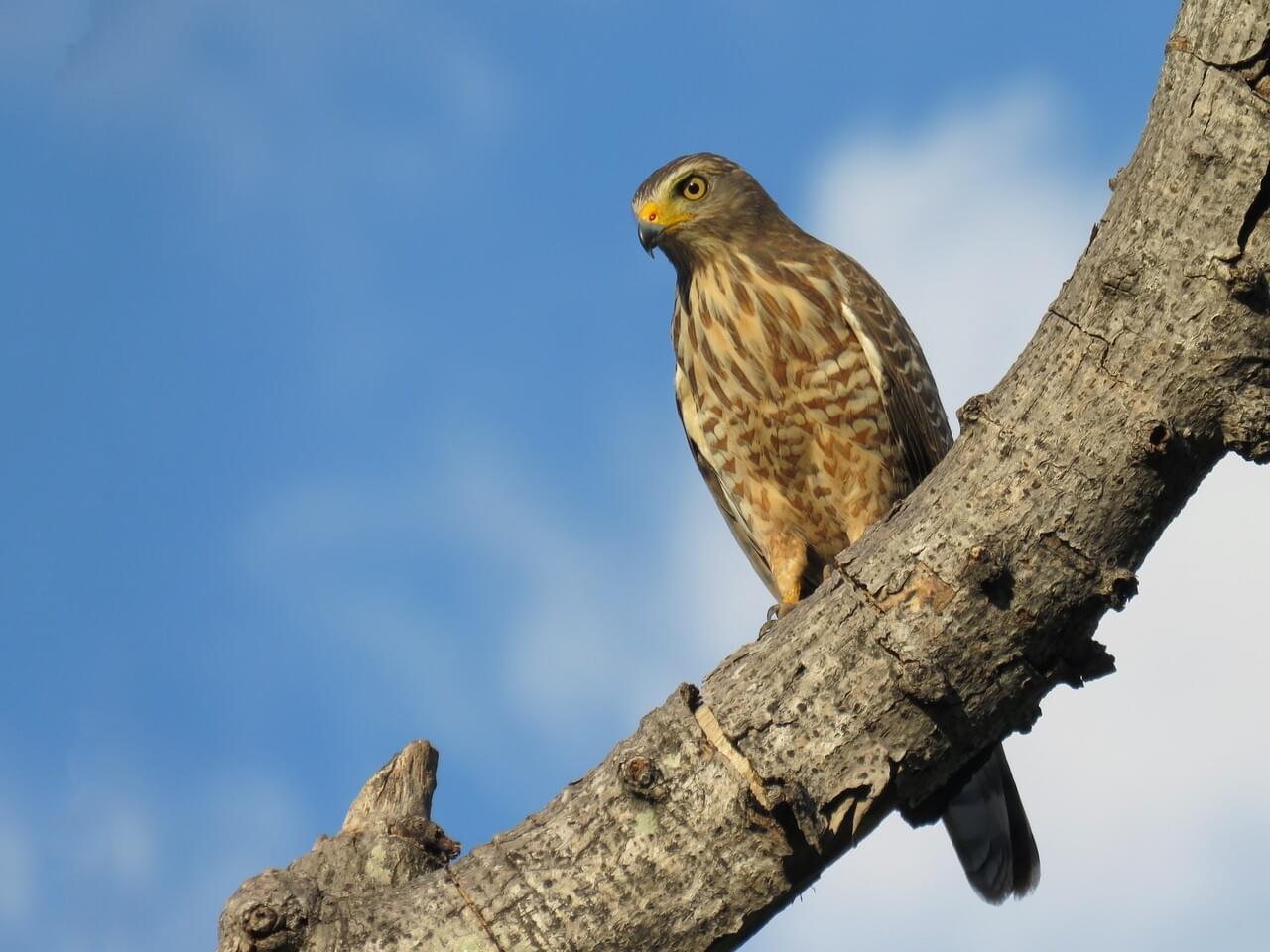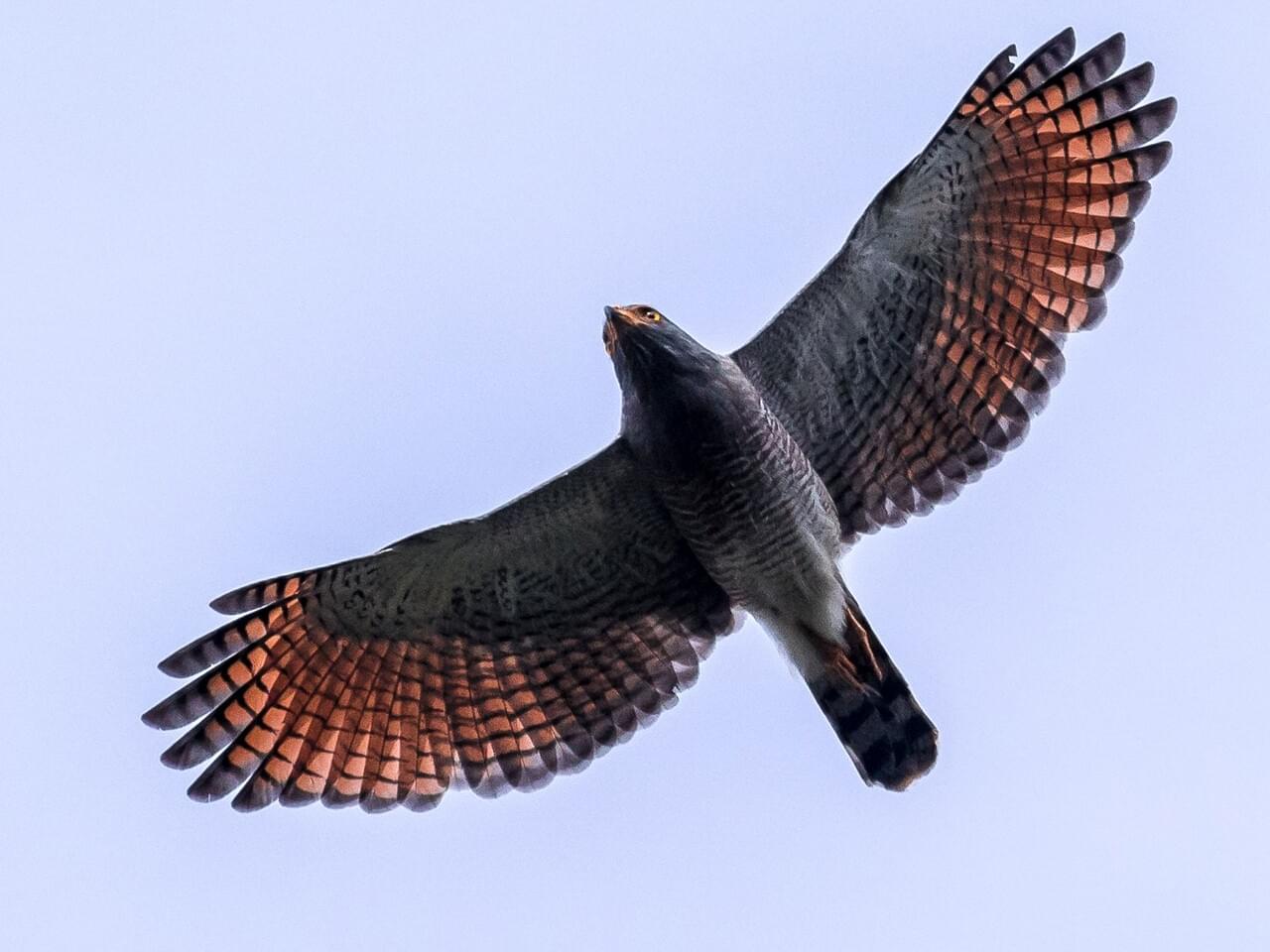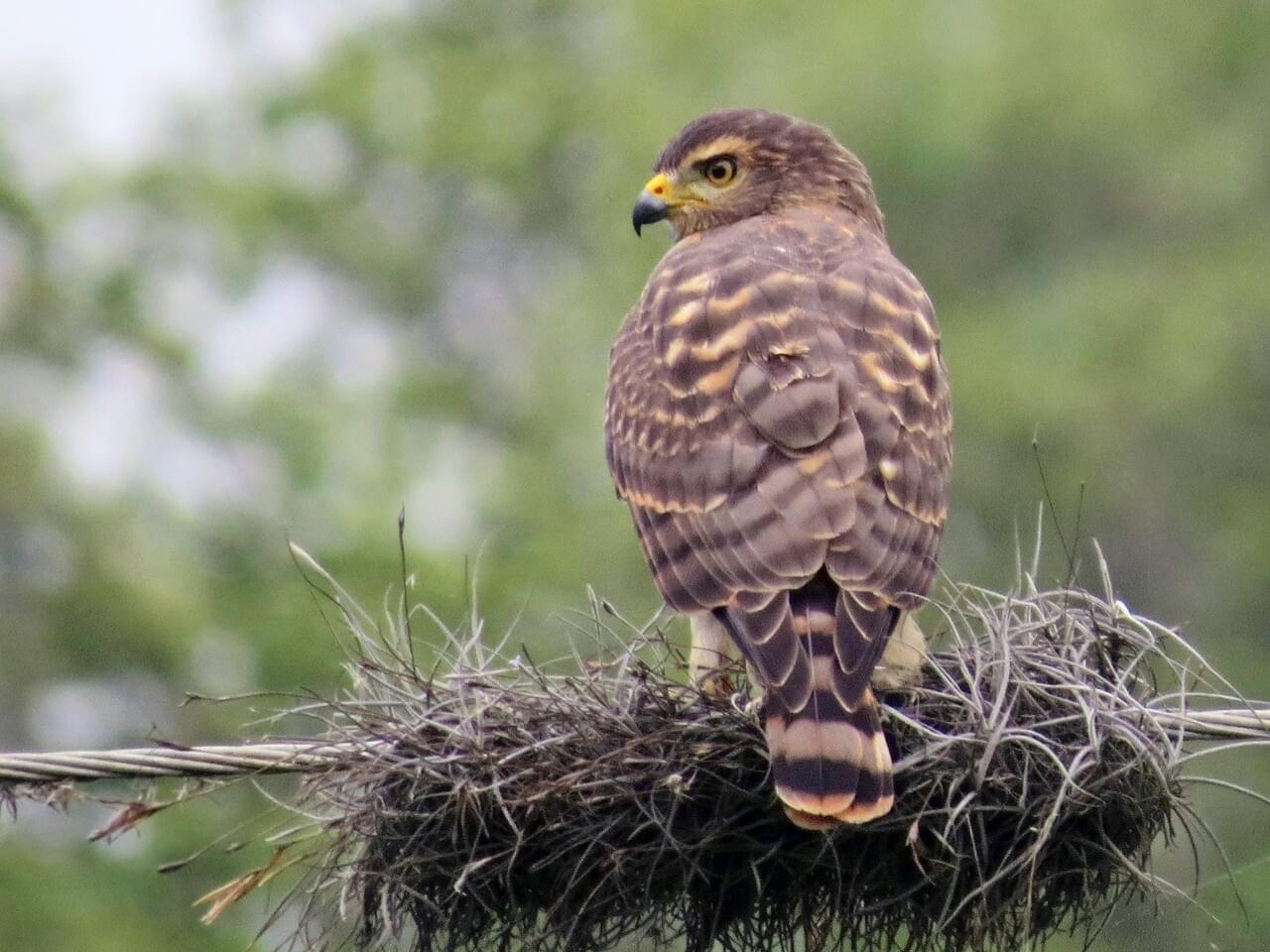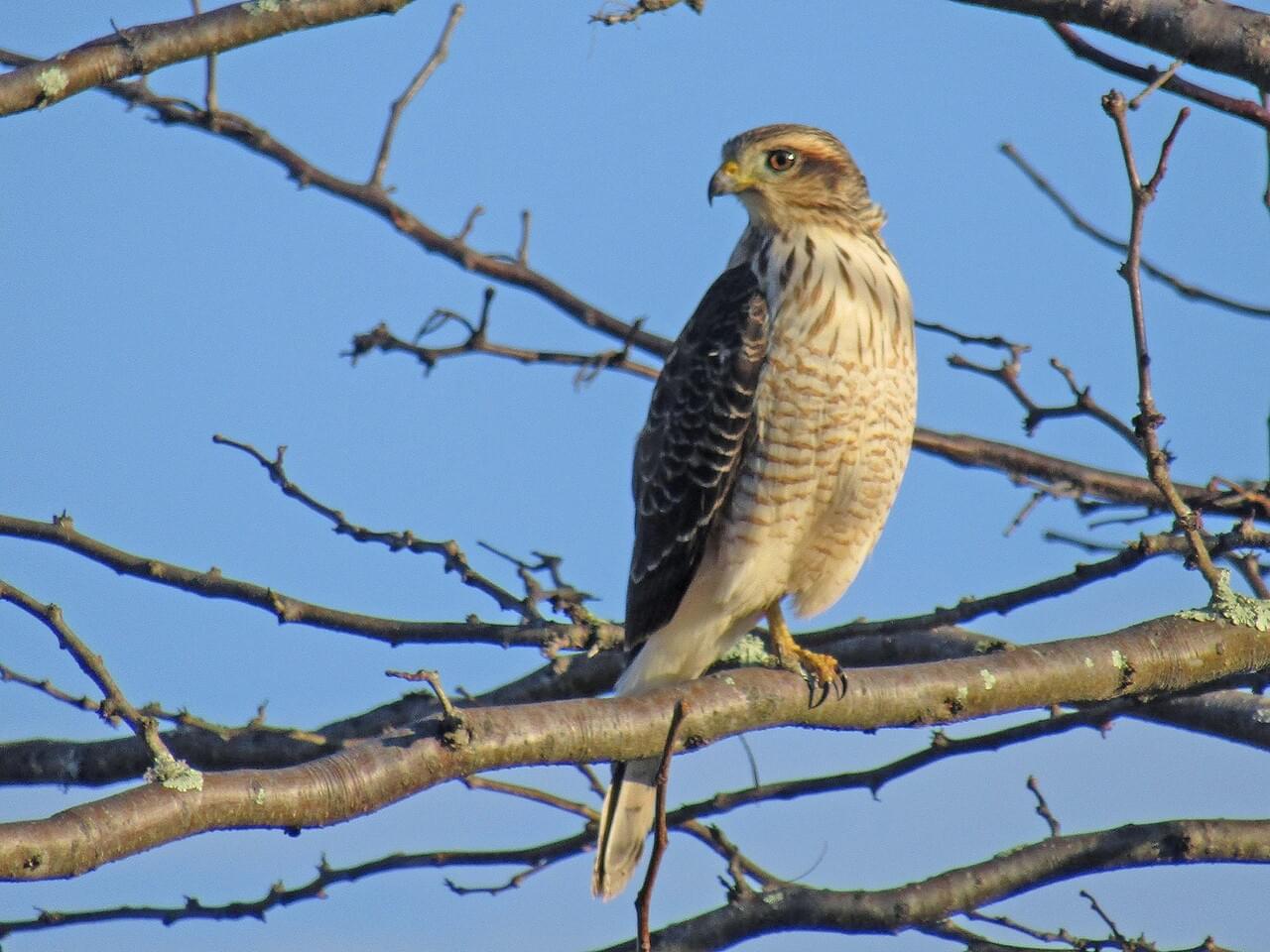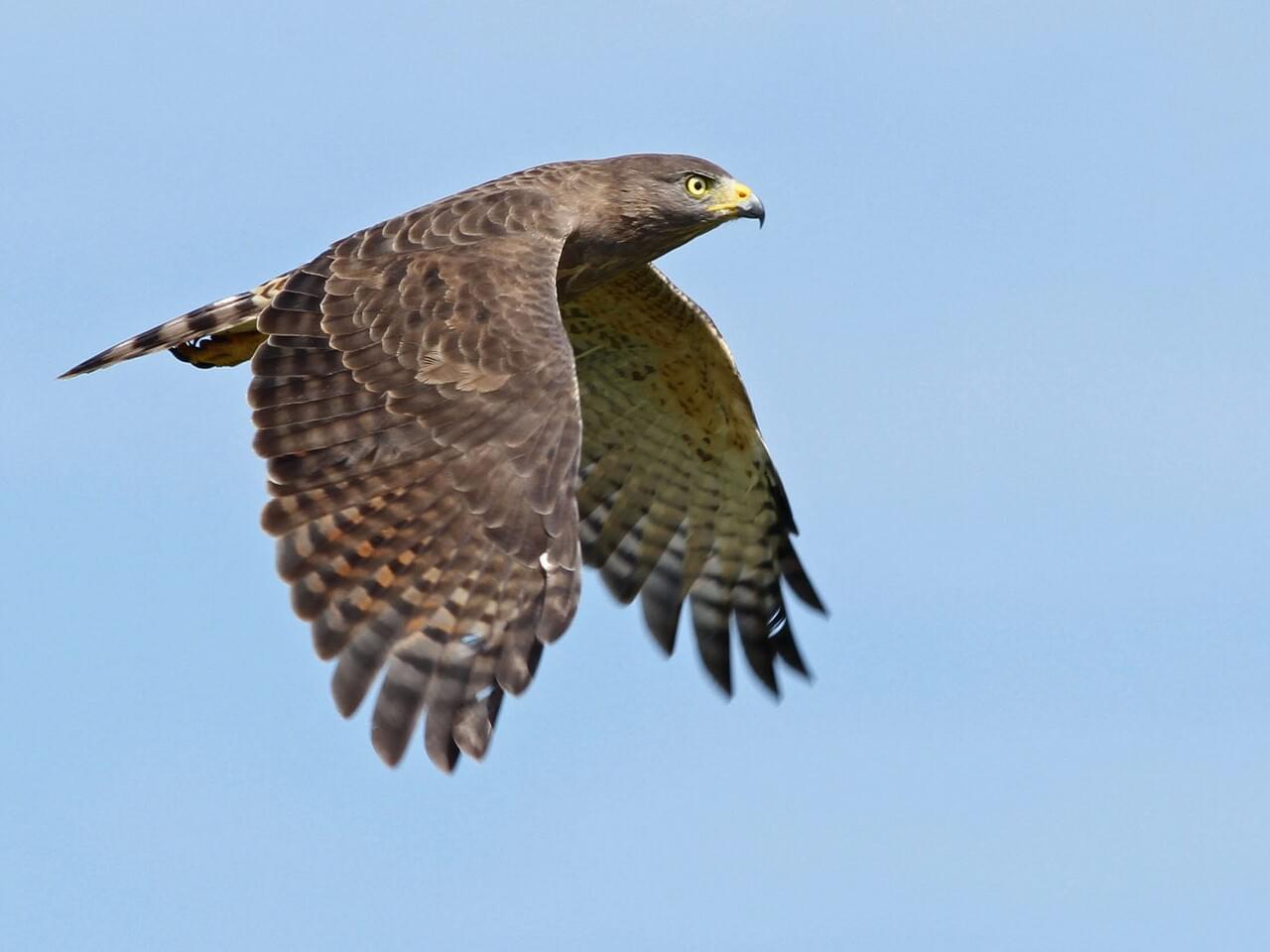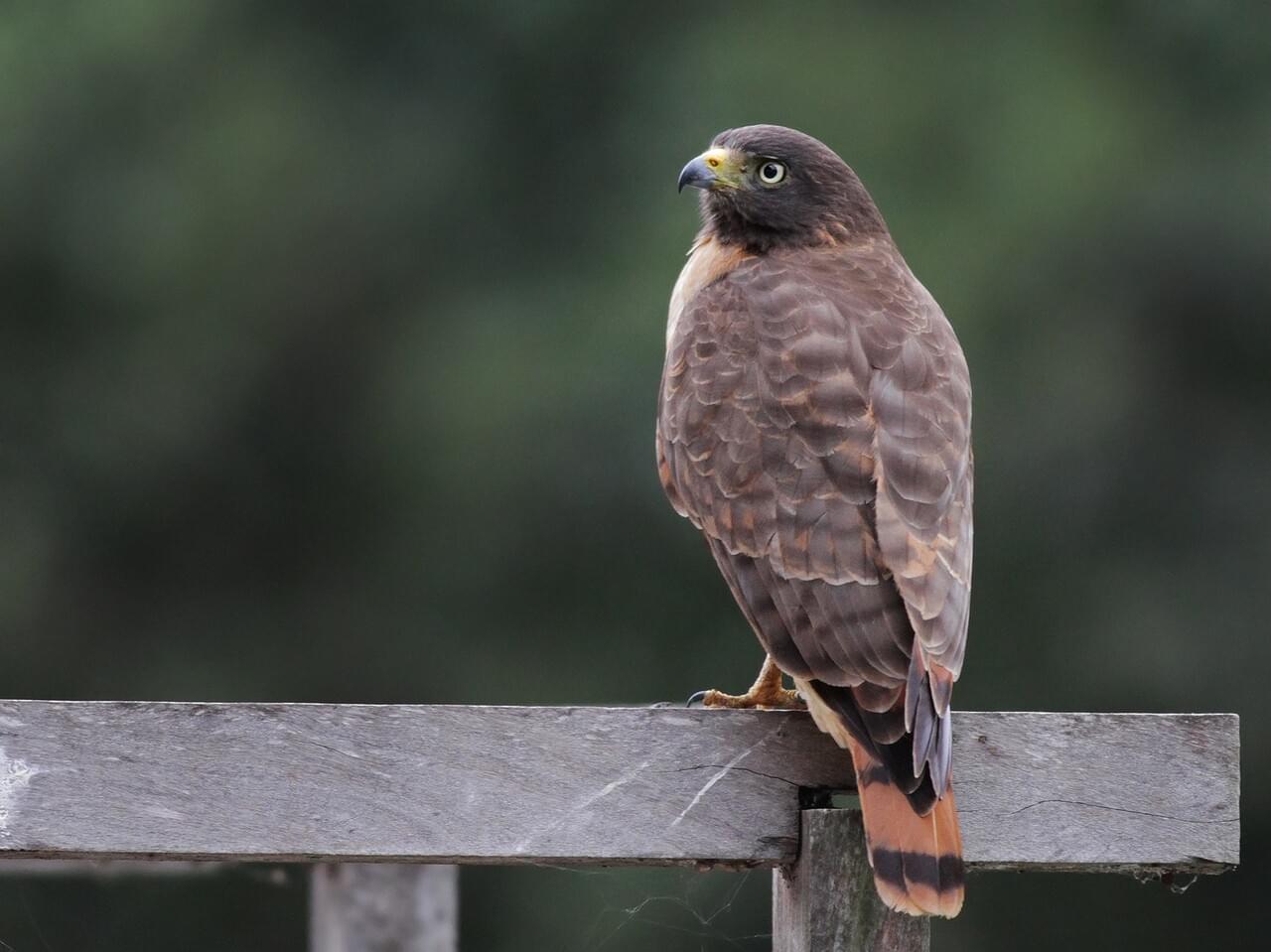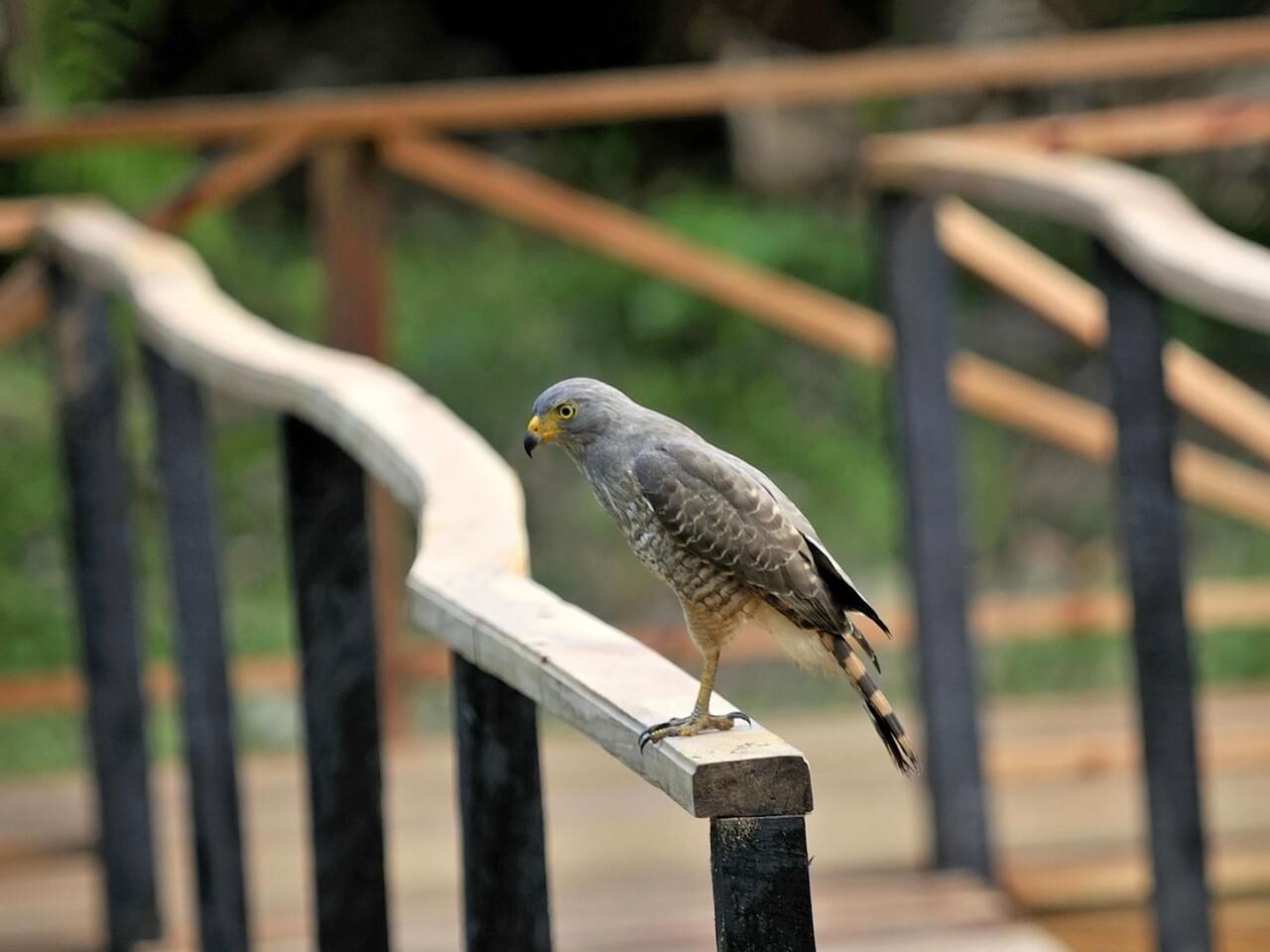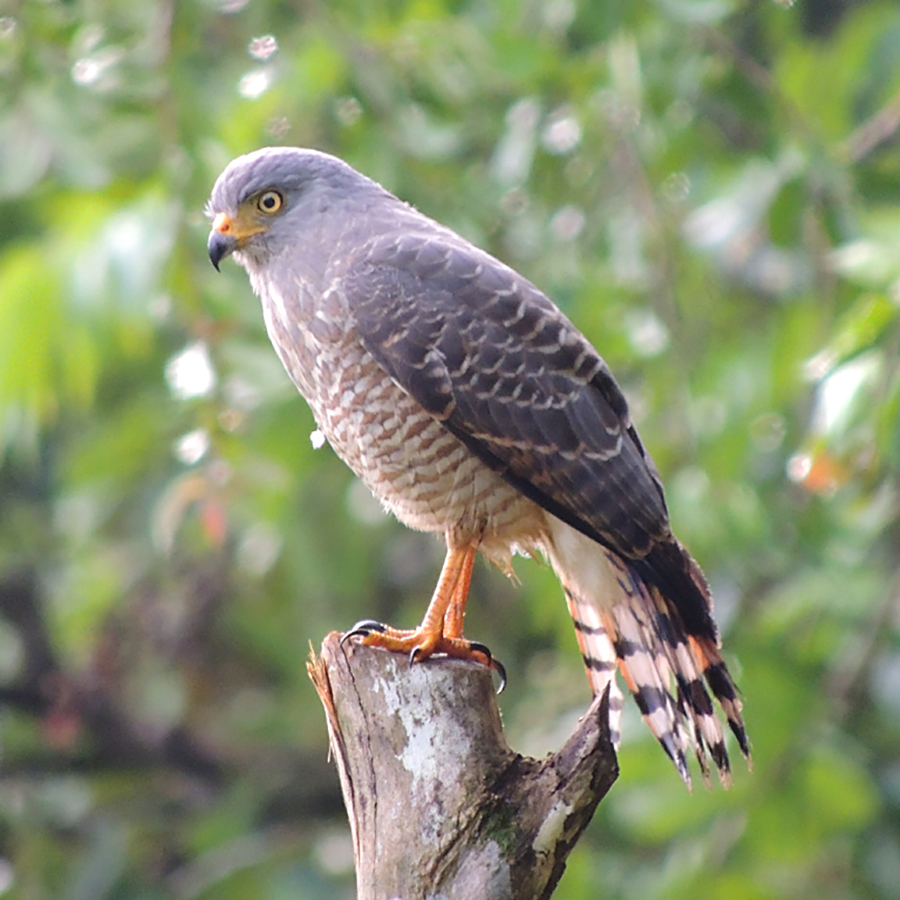 Photo ©
Richard Garrigues
Photo ©
Richard Garrigues
Roadside Hawk
Regional Species
The Roadside Hawk is one of the most widespread raptors of the Neotropics. Its name is due to its preference for the edges of forests. It is found in open to semi-open areas, forest borders, roadsides and plantations. It is usually not found in the forest interior. The Roadside Hawk feeds on a variety of small prey including reptiles, small mammals and birds, but mainly feeds on insects. This is not a social species; pairs can be seen during breeding season.
Range
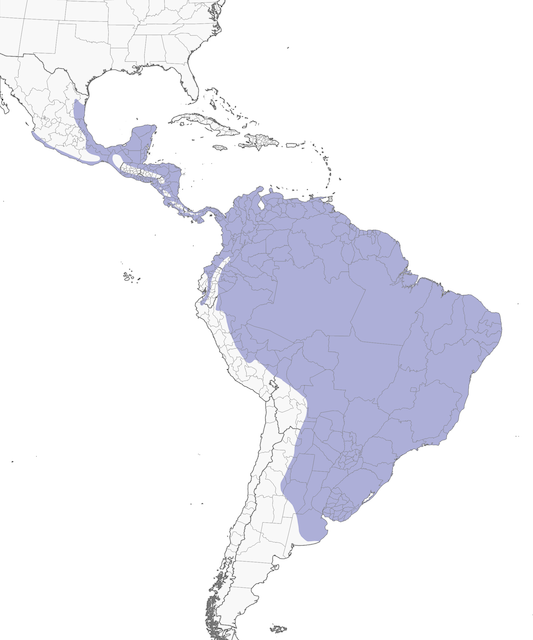
Habitat
![]() The Roadside Hawk is usually seen on the edges of forests and roads, on isolated trees, light poles, and antennas. It is rarely seen in the interior of forests.
The Roadside Hawk is usually seen on the edges of forests and roads, on isolated trees, light poles, and antennas. It is rarely seen in the interior of forests.
Food
![]() The Roadside Hawk feeds on a variety of small prey, including reptiles, small mammals and birds, and in some areas it also eats fish. However, it mainly feeds on insects.
The Roadside Hawk feeds on a variety of small prey, including reptiles, small mammals and birds, and in some areas it also eats fish. However, it mainly feeds on insects.
Behavior
![]() The Roadside Hawk is not a social species. Pairs can be seen during the breeding season. While breeding it is common to observe Roadside Hawks soaring with flat wings and closed tail. It prefers to perch on isolated vertical structures such light poles, trees, posts, and antennas.
The Roadside Hawk is not a social species. Pairs can be seen during the breeding season. While breeding it is common to observe Roadside Hawks soaring with flat wings and closed tail. It prefers to perch on isolated vertical structures such light poles, trees, posts, and antennas.
Nesting
![]() Roadside Hawks build nests from medium to high heights in trees. Nests are compact platforms built with twigs, leaves and tree bark. The female lays 2 eggs.
Roadside Hawks build nests from medium to high heights in trees. Nests are compact platforms built with twigs, leaves and tree bark. The female lays 2 eggs.
Appearance
Typical Sound

© David L. Ross, Jr. / Macaulay Library
Size & Shape
The Roadside Hawk is a small raptor of 33-41 cm in height. Males are smaller than females. It has rounded wings, long legs, slim appearance, and barred belly and tail.
Color Pattern
The Roadside Hawk has a characteristic rufous patch on its wings; which is very evident while flying. Its beak, legs, and eyes are yellow-orange in color. Head and back parts are dark grey, whitish neck striped with gray-brown.
Plumage Photos
Similar Species
The Broad-winged Hawk has smaller tail, with rufous barred belly in adults and striped in juveniles. While flying Broad-winged Hawks extend their tail and prefer forested areas.
Did you know?!
The Roadside Hawk feeds on a variety of small prey including reptiles, small mammals and birds, but mainly feeds on insects.
It flies with short wing beats, rarely soaring
It is common to see Roadside Hawks perching on light poles, trees and antennas.
